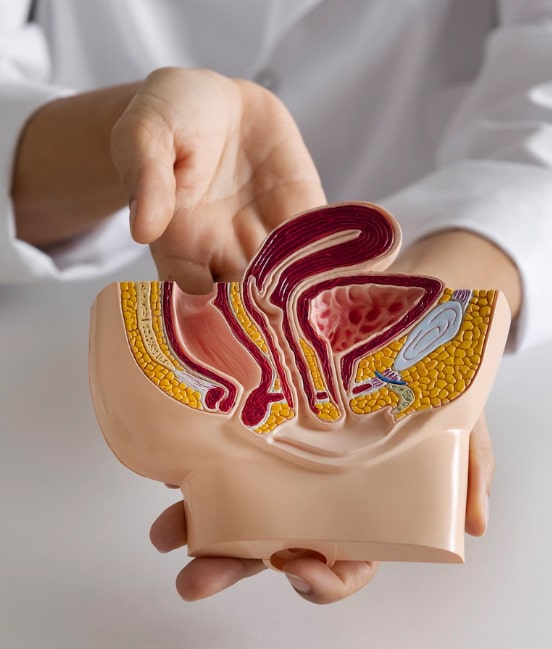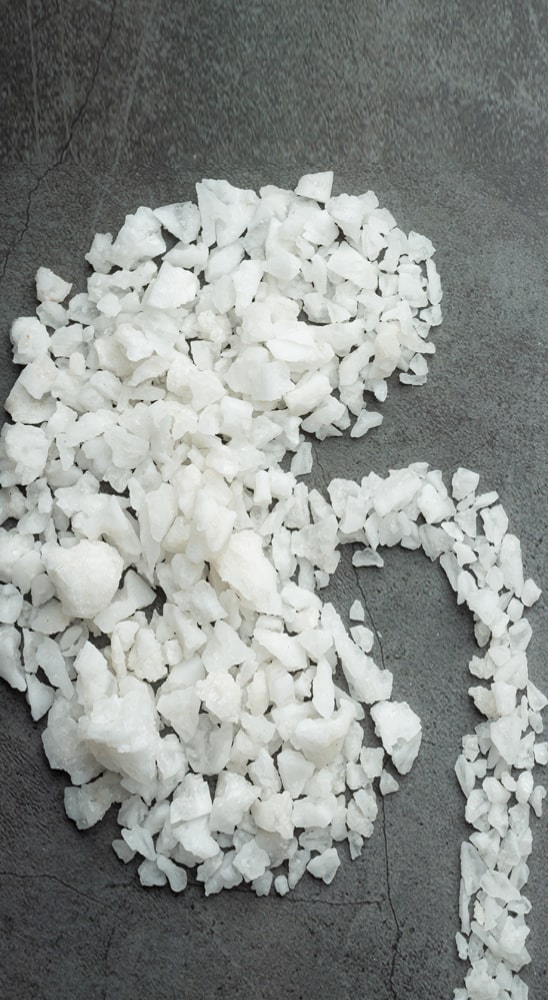Kidney stones, also known as lithiasis renalis, are solid formations that develop in the kidneys when certain substances present in the urine crystallize and accumulate.
These stones can cause severe pain and discomfort, as well as lead to complications if not treated properly.
In this article, we will explore what kidney stones are, discuss some of the underlying causes, and discuss the different treatments availableand discuss the different treatments available.

What are kidney stones?
Kidney stones are solid masses formed by substances such as calcium, uric acid, oxalate, phosphate and cystine, which crystallize in the kidneys.
These stones can vary in size from small particles to larger stones that can obstruct the flow of urine.
Causes of kidney stones
Kidney stones can have multiple causes, and are often the result of a combination of factors.
Some of the common causes include:
Concentration of substances in the urine:
If the urine contains high levels of calcium, oxalate, uric acid or cystine, there is an increased risk of kidney stone formation.
Inadequate fluid intake:
Dehydration and lack of adequate fluid intake can contribute to kidney stone formation, as urine becomes more concentrated and crystallization of substances is facilitated.
Genetic factors:
Some people have a genetic predisposition to develop kidney stones.
Underlying medical conditions:
Some diseases, such as hyperparathyroidism, chronic kidney disease, gout and inflammatory bowel disease, increase the risk of kidney stone formation.
Dietary factors:
A diet high in sodium, sugars, animal proteins, oxalate and low in calcium may increase the risk of kidney stone formation.


Treatments for kidney stones:
Treatment of kidney stones depends on the size, location and severity of symptoms. Some treatment options include:
Fluid intake:
Drinking plenty of water and fluids can help dilute urine and make it easier to pass smaller kidney stones.
Pain relievers:
Analgesics may be prescribed to relieve pain associated with kidney stones.
Medications:
Depending on the type of kidney stone, medications may be prescribed to help prevent new stones from forming or to facilitate their dissolution.
Extracorporeal shock wave therapy (ESWT):
In this noninvasive procedure, high-energy shock waves are used to break kidney stones into smaller fragments, making them easier to pass through the urine.
Ureteroscopy:
In this procedure, a flexible ureteroscope is used to access the urinary tract and remove or fragment kidney stones. The use of lasers or extraction devices may be necessary.
Percutaneous nephrolithotomy:
This procedure is used for larger kidney stones. A small incision is made in the back to access the kidney and an instrument is used to remove or fragment the stones.
Open surgery:
In rare and complicated cases, open surgery may be necessary to remove kidney stones.
Extra tips to help this condition
n addition to these treatments, it is important to take preventive measures to reduce the risk of new kidney stones forming:
-Drinking enough water to maintain good hydration and produce urine in adequate amounts.
-Follow a balanced and healthy diet, limiting the consumption of foods rich in sodium, oxalate and animal proteins.
-Reduce consumption of carbonated and alcoholic beverages.
-Limit salt intake in the diet.
-Follow medical indications for the management of underlying diseases that may increase the risk of kidney stone formation.
-Regular physical activity.
It is important to note that the treatment and prevention of kidney stones should be personalized and supervised by a medical specialist, such as a urologist. Each case is unique and requires an individualized assessment to determine the best therapeutic approach.
In conclusion
Kidney stones are solid formations that develop in the kidneys due to crystallization of substances present in the urine.
They can cause severe pain and discomfort, but there are several treatment options available.
From lifestyle changes and medications to non-invasive procedures and surgery, treatment of kidney stones varies depending on the size, location and severity of symptoms.
In addition, it is important to take preventive measures to reduce the risk of new kidney stone formation.
Consultation with a medical specialist is essential to receive a proper diagnosis and a personalized treatment plan.



















